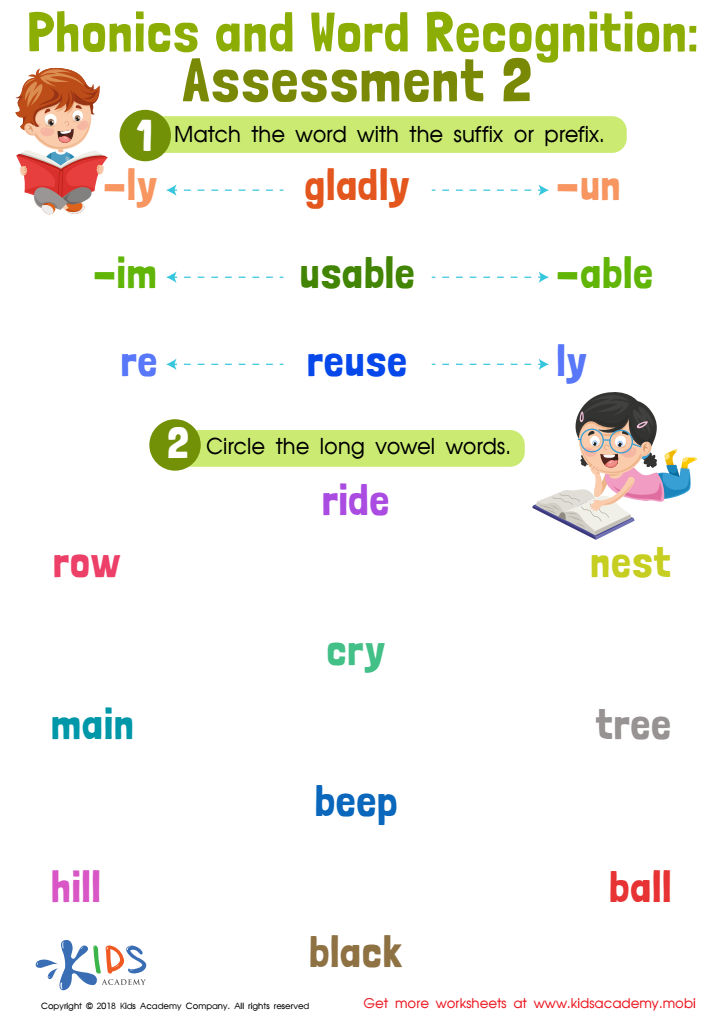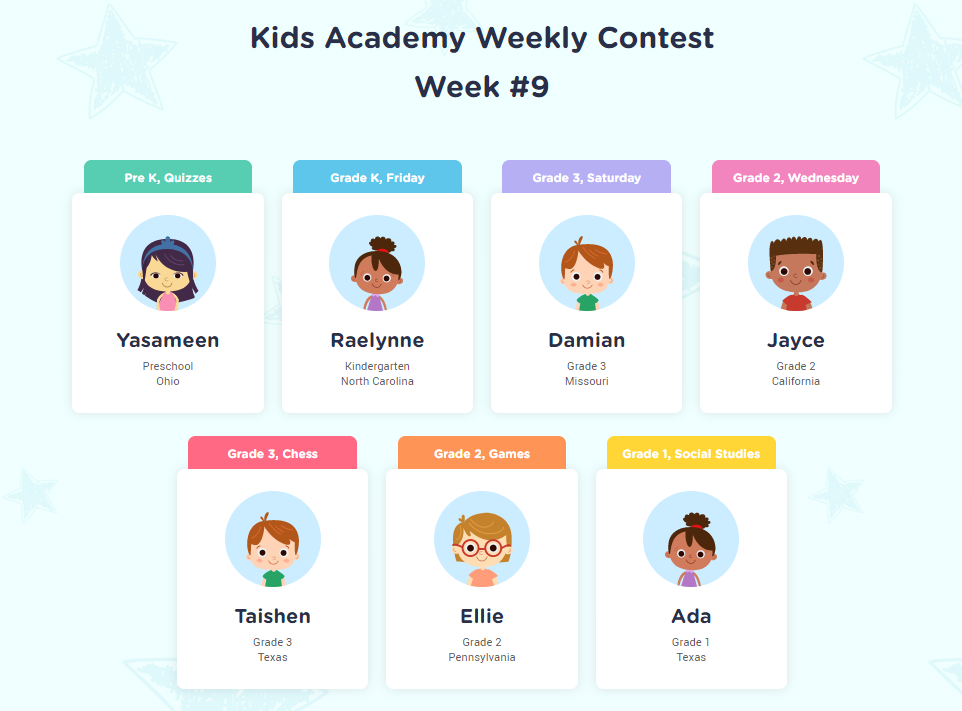Vowels worksheets activities for Ages 7-8
3 filtered results
-
From - To


Let's Check Long Vowels: Assessment Worksheet


Long and Short Vowel Sentences: Assessment Worksheet


Phonics and Word Recognition: Assessment 2
Vowels worksheets activities are an invaluable resource for educators and parents alike, serving a crucial role in the development of early literacy skills in children. These educational tools focus specifically on the vowels - A, E, I, O, and U - which are fundamental components of the English language. Their importance cannot be understated, as mastering vowels is essential for young learners to progress in reading, writing, and comprehension.
One of the key reasons why vowels worksheets activities are so useful is that they provide a structured way for children to understand the concept of vowels, their sounds, and their usage in words. Unlike consonants, each vowel can represent multiple sounds, which can be confusing for early learners. Through engaging worksheets, children can practice these sounds in a variety of words and contexts, helping to solidify their understanding and improve their phonetic skills.
Moreover, vowels worksheets activities are designed to be interactive and enjoyable, which enhances the learning experience for children. By turning lessons into games or puzzles, children are more likely to engage with the material and retain the information they've learned. This means that the learning process is not only effective but also enjoyable, encouraging a positive attitude towards learning in general.
Additionally, these activities are incredibly versatile, allowing for individual, small group, or whole class participation. This flexibility means that educators and parents can tailor the learning experience to meet the specific needs of their students or children, ensuring that each child can progress at their own pace.
In conclusion, vowels worksheets activities are a cornerstone of early literacy education. They offer a targeted, engaging, and effective way of teaching young learners about an essential component of the English language. By incorporating these activities into their educational toolkit, educators and parents can provide their children with the foundation they need to become successful readers and writers.
 Assign to the classroom
Assign to the classroom












